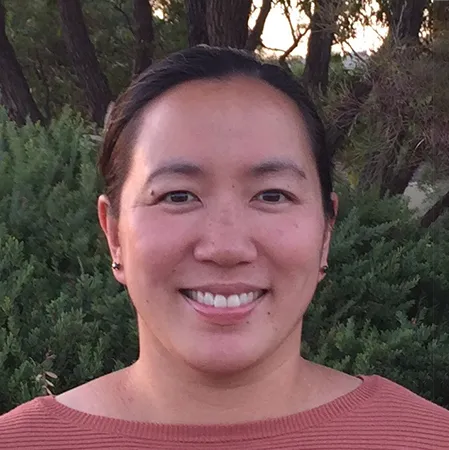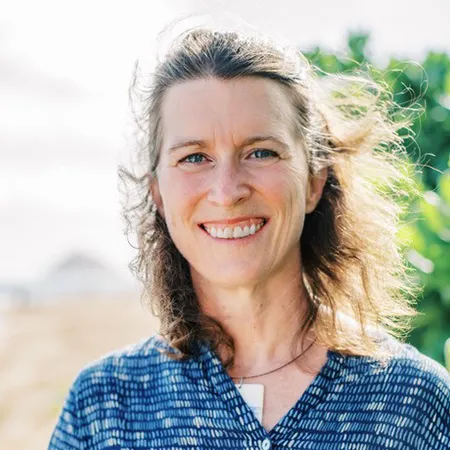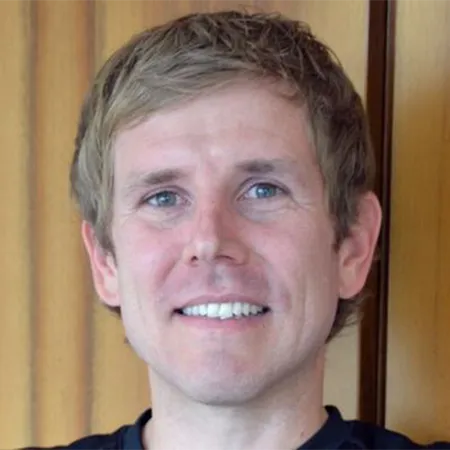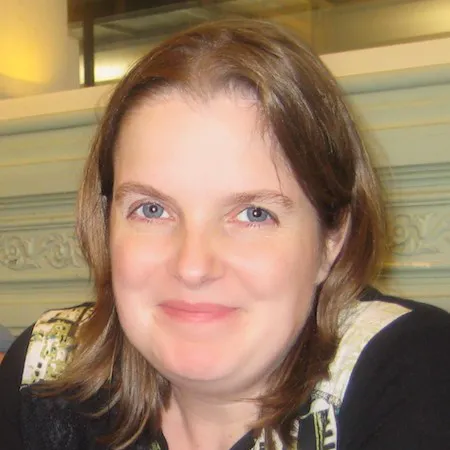Addressing complex problems that cross disciplinary and sectoral boundaries requires combining knowledge from multiple domains, and integrated modeling provides an ideal platform for this. It facilitates synthesis of data, theories, and perspectives to explore interactions and seek solutions. But, selecting the best modeling approach can be daunting, especially when considering the many options available—including system dynamics, agent-based, Bayesian network, and coupled component models. In this webinar and panel discussion event, scholars from the field of socio-environmental modeling will focus on how to select a modeling approach that best suits the unique socio-environmental issue or system that a researcher is exploring.
The event will begin with a pre-recorded presentation developed by Drs. Serena Hamilton, Tony Jakeman, and Sondoss Elswah, followed by short talks from each panelist based on their experiences with different modeling approaches; then, an open discussion will follow. Viewers may post questions and comments. The event is intended for practitioners and scholars who commission, sponsor, or use socio-environmental system models.
TUES. 29 NOV. 2022, 15:00 – 16:30 (EDT UTC -4)
TUES. 29 NOV. 2022, 21:00 – 22:30 (CEST UTC +2)
WED. 30 NOV. 2022, 07:00 – 08:30 (AEST UTC +10)
| Welcome & Introduction | Margaret Palmer, Director, National Socio-Environmental Synthesis Center, USA |
| Presentation “Selecting a Modeling Approach” (20 mins.) |
Presented by: Serena Hamilton, Research Fellow, Australian National University, Australia |
| Panel Session (Responses 7 mins. per panelist) |
Kirsten Oleson, Professor, University of Hawaiʻi Mānoa, USA David Wrathall, Associate Professor, Oregon State University, USA Hedwig van Delden, Director of the Research Institute for Knowledge Systems (RIKS), Netherlands & Adjunct Associate Professor, University of Adelaide |
| Q&A (15 mins.) | Presenters and panelists respond to questions from the participants. |
| Open Discussion (10 mins.) |
Presenters
Dr. Serena Hamilton is a research fellow at the Institute for Water Futures at the Australian National University. Her research is in the area of water resources management and integrated assessment and modeling. Her main focus is on developing interdisciplinary models for improving understanding and management of complex socio-environmental systems. She is particularly interested in the dynamic interplay between water, humans, and ecosystems, as well as how to improve associated sustainability outcomes through better-informed decision making. Her recent work includes designing integrated...
Dr. Serena Hamilton is a research fellow at the Institute for Water Futures at the Australian National University. Her research is in the area of water resources management and integrated assessment and modeling. Her main focus is on developing interdisciplinary models for improving understanding and management of complex socio-environmental systems. She is particularly interested in the dynamic interplay between water, humans, and ecosystems, as well as how to improve associated sustainability outcomes through better-informed decision making. Her recent work includes designing integrated assessment frameworks for understanding pathways for socially inclusive and sustainable agricultural intensification in developing countries. Serena is also the managing editor of the open-access journal Socio-Environmental Systems Modelling (SESMO).
Dr. Kirsten Oleson is a Professor of Ecological Economics with the Department of Natural Resources and Environmental Management at the University of Hawaiʻi at Mānoa. She is an interdisciplinary sustainability scientist. Her research program's overarching goal is to ensure that the value of nature is captured in national, state, and community decision making. She employs tools from economics, social science, engineering, and decision analysis to provide rigorous foundations for discussions of trade-offs. She engages with national and state policy makers and local communities over a wide range...
Dr. Kirsten Oleson is a Professor of Ecological Economics with the Department of Natural Resources and Environmental Management at the University of Hawaiʻi at Mānoa. She is an interdisciplinary sustainability scientist. Her research program's overarching goal is to ensure that the value of nature is captured in national, state, and community decision making. She employs tools from economics, social science, engineering, and decision analysis to provide rigorous foundations for discussions of trade-offs. She engages with national and state policy makers and local communities over a wide range of resource management, economic development, and conservation issues that are of direct and urgent relevance to the state of Hawaiʻi and other Pacific Islands, such as food security, climate adaptation, and sustainable economic growth. She is currently a Pew Marine Fellow; her Pew project is to build coastal ecosystem accounts for the state of Hawaiʻi.
Dr. David Wrathall is an Associate Professor of Natural Hazards at Oregon State University’s College of Earth, Ocean and Atmospheric Sciences, and a Lead Author on the Intergovernmental Panel on Climate Change (IPCC) AR6 on Chapter 8: Poverty, Livelihoods, and Sustainable Development. He also coordinated the group of IPCC authors contributing to the cross-chapter treatment of migration, displacement, and mobility for the Sixth Assessment. David studies the ways that climate change impacts are threatening people’s livelihoods and rendering parts of the planet uninhabitable, and thus driving new...
Dr. David Wrathall is an Associate Professor of Natural Hazards at Oregon State University’s College of Earth, Ocean and Atmospheric Sciences, and a Lead Author on the Intergovernmental Panel on Climate Change (IPCC) AR6 on Chapter 8: Poverty, Livelihoods, and Sustainable Development. He also coordinated the group of IPCC authors contributing to the cross-chapter treatment of migration, displacement, and mobility for the Sixth Assessment. David studies the ways that climate change impacts are threatening people’s livelihoods and rendering parts of the planet uninhabitable, and thus driving new patterns of human migration. He has examined human migration in response to various climate change hazards, including sea level rise, tropical weather extremes, glacier recession, drought and ocean acidification. David also studies other wicked environmental problems, including the environmental consequences of narco-trafficking in Central America, and the relationship between climate change, violent conflict and human displacement. David teaches courses on Climate Justice.
Dr. Hedwig van Delden is the Director of the Research Institute for Knowledge Systems (RIKS) in the Netherlands and an Adjunct Associate Professor in the School of Civil, Environmental and Mining Engineering at the University of Adelaide. She applies research into planning and policy practice, in particular on understanding and modeling land-use dynamics, disaster-risk dynamics, integrating socio-economic and biophysical processes, bridging the science-policy gap and the development of strategic scenarios. She integrates disciplines, as well as techniques (analysis, modeling, participation)...
Dr. Hedwig van Delden is the Director of the Research Institute for Knowledge Systems (RIKS) in the Netherlands and an Adjunct Associate Professor in the School of Civil, Environmental and Mining Engineering at the University of Adelaide. She applies research into planning and policy practice, in particular on understanding and modeling land-use dynamics, disaster-risk dynamics, integrating socio-economic and biophysical processes, bridging the science-policy gap and the development of strategic scenarios. She integrates disciplines, as well as techniques (analysis, modeling, participation). Hedwig has managed and contributed to a vast range of projects with multiple partners and objectives for various governmental organizations such as the European Commission, the Puerto Rican and Dutch governments, the World Bank, the Asian Development Bank, various city regional councils in New Zealand, and the Bushfire and Natural Hazard Cooperative Research Centre in Australia. Hedwig has published extensively on her work and has become an internationally recognized expert with frequent speaking assignments at renowned scientific and policy-oriented congresses; she has also taken on numerous teaching assignments in universities and research institutes worldwide.
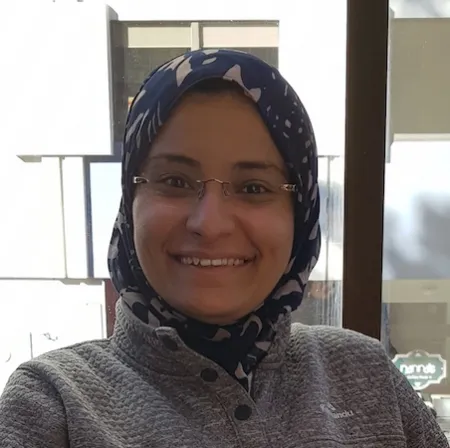
Sondoss Elsawah
Sondoss Elsawah is an Associate Professor of Systems Engineering and Information Technology, and the Director of the Capability Systems Centre at University of New South Wales. Her research program focuses on understanding the behavior of large complex problems and systemic risks that arise from the interactions between social, technological, and environmental systems. She is an expert on the application of systems thinking and system modeling methodologies to support decision making and education. Building on her academic achievements, Sondoss been recognized as a thought leader in her...

Sondoss Elsawah
Sondoss Elsawah is an Associate Professor of Systems Engineering and Information Technology, and the Director of the Capability Systems Centre at University of New South Wales. Her research program focuses on understanding the behavior of large complex problems and systemic risks that arise from the interactions between social, technological, and environmental systems. She is an expert on the application of systems thinking and system modeling methodologies to support decision making and education. Building on her academic achievements, Sondoss been recognized as a thought leader in her scientific fields in Australia and internationally. For example, she is the Vice President of the Australian Society of Operations Research (ASOR) and was elected a distinguished Fellow of the Modelling and Simulation Society of Australia and New Zealand (MSSANZ). Sondoss is a senior editor of the Journal of Environmental Modelling and Software (A*) and the journal of Group Decision and Negotiation (A*).
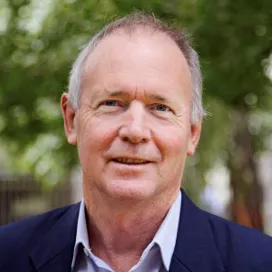
Tony Jakeman
Dr. Anthony (Tony) Jakeman is a Professor Emeritus in the Fenner School of Environment and Society and Director of the Integrated Catchment Assessment and Management (iCAM) Centre at The Australian National University. He is also a member of the Institute for Water Futures. Tony is an environmental modeler with over 450 publications, and he has been a principal supervisor to over 60 graduated PhD students. Since 1997, Tony has directed the iCAM Centre pursuing methods and applications of integrated assessment and decision support on water resource issues.

Tony Jakeman
Dr. Anthony (Tony) Jakeman is a Professor Emeritus in the Fenner School of Environment and Society and Director of the Integrated Catchment Assessment and Management (iCAM) Centre at The Australian National University. He is also a member of the Institute for Water Futures. Tony is an environmental modeler with over 450 publications, and he has been a principal supervisor to over 60 graduated PhD students. Since 1997, Tony has directed the iCAM Centre pursuing methods and applications of integrated assessment and decision support on water resource issues.
